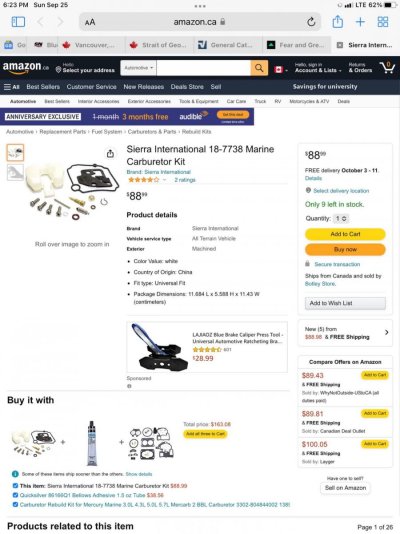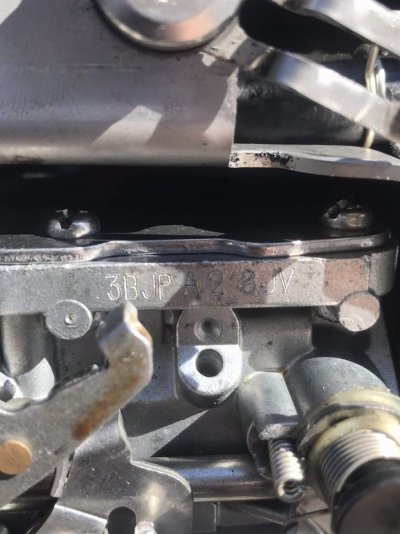JDCAVE
Guru
- Joined
- Apr 3, 2011
- Messages
- 2,902
- Location
- Canada
- Vessel Name
- Phoenix Hunter
- Vessel Make
- Kadey Krogen 42 (1985)
I had some issues with my Merc. 20 hp on my skiff. My son services small engines for a living, so is my “go to” service guy. He had the carb off in a jiffy and worked on it with carb cleaner, etc. after a bit of back and forth, he got it running but recommended I get a carburetor service kit as the needle valve was sticky. We found this link on Amazon, but I wonder if there is a better source. Please advise if you have one. I typically get parts mailed to Point Robert’s and go across the border (pre pandemic) so look forward to doing that again!


Jim


Jim


